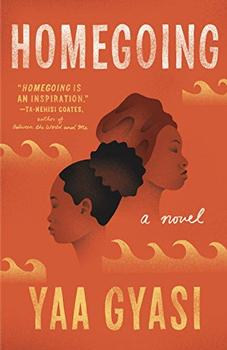Summary | Excerpt | Reading Guide | Reviews | Beyond the Book | Readalikes | Genres & Themes | Author Bio

Millicent's mother had been given a new name by her white husband. She was a plump, fleshy woman with teeth that twinkled against the dark night of her skin. She had decided to move out of the Castle and into the village once her husband died. Because the white men could not leave money in their wills to their Fante wives and children, they left it to other soldiers and friends, and those friends paid the wives. Millicent's mother had been given enough money for a new start and a piece of land. She and Millicent would often come visit Effia and Baaba, for, as she said, they would soon be a part of the same family.
Millicent was the lightest-skinned woman Effia had ever seen. Her black hair reached down to the middle of her back and her eyes were tinged with green. She rarely smiled, and she spoke with a husky voice and a strange Fante accent.
"What was it like in the Castle?" Baaba asked Millicent's mother one day while the four women were sitting to a snack of groundnuts and bananas.
"It was fine, fine. They take care of you, oh, these men! It is like they have never been with a woman before. I don't know what their British wives were doing. I tell you, my husband looked at me like I was water and he was fire, and every night he had to be put out."
The women laughed. Millicent slipped Effia a smile, and Effia wanted to ask her what it was like with Abeeku, but she did not dare.
Baaba leaned in close to Millicent's mother, but still Effia could hear, "And they pay a good bride price, eh?"
"Enh, I tell you, my husband paid my mother ten pounds, and that was fifteen years ago! To be sure, my sister, the money is good, but I for one am glad my daughter has married a Fante. Even if a soldier offered to pay twenty pounds, she would not get to be the wife of a chief. And what's worse, she would have to live in the Castle, far from me. No, no, it is better to marry a man of the village so that your daughters can stay close to you."
Baaba nodded and turned toward Effia, who quickly looked away. That night, just two days after her fifteenth birthday, the blood came. It was not the powerful rush of the ocean waves that Effia had expected it to be, but rather a simple trickle, rain dripping, drop by drop, from the same spot of a hut's roof. She cleaned herself off and waited for her father to leave Baaba so that she could tell her.
"Baaba," she said, showing her the palm fronds painted red.
"I have gotten my blood."
Baaba placed a hand over her lips.
"Who else knows?"
"No one," Effia said.
"You will keep it that way. Do you understand? When anyone asks you if you have become a woman yet, you will answer no."
Effia nodded. She turned to leave, but a question was burning hot coals in the pit of her stomach.
"Why?" she finally asked.
Baaba reached into Effia's mouth and pulled out her tongue, pinching the tip with her sharp fingernails.
"Who are you that you think you can question me, enh? If you do not do as I say, I will make sure you never speak again." She released Effia's tongue, and for the rest of the night, Effia tasted her own blood.
Excerpted from Homegoing by Yaa Gyasi. Copyright © 2016 by Yaa Gyasi. All rights reserved. No part of this excerpt may be reproduced or reprinted without permission in writing from the publisher.
Your guide toexceptional books
BookBrowse seeks out and recommends the best in contemporary fiction and nonfiction—books that not only engage and entertain but also deepen our understanding of ourselves and the world around us.